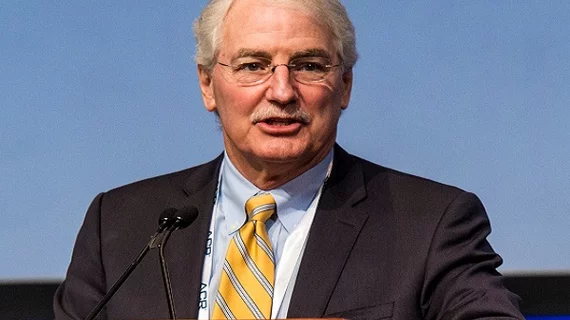ACR concerned surprise medical billing plan would grant insurers too much sway
The American College of Radiology (ACR) announced Tuesday, Dec. 10, that it’s against a new congressional proposal aimed at preventing patients from receiving “surprise” medical bills.
Lawmakers recently announced bipartisan agreement, between both chambers of Congress, on a new piece of legislation to address this issue. But the college is concerned the bill would grant insurers too much authority at the expense of radiologists and other stakeholders, said CEO William Thorwarth, MD.
“The American College of Radiology agrees that the patient should be protected from ‘surprise medical bills’ resulting from inadequate coverage networks. That is not at question,” he said in a statement. “However, placing unfettered power in these occurrences in the hands of insurers would impact access to care that neither patients, providers or the government will be happy with.”
U.S. Sen. Lamar Alexander, R-Tenn., and Reps. Frank Pallone Jr., D-N.J., and Greg Walden, R-Ore., first unveiled the Lower Health Care Costs Act of 2019 on Sunday, Dec. 8. The legislation would end surprise medical billing for patients and include a system to independently settle healthcare payment disputes, which is favored by providers.
In a statement, the three legislators said there’s “broad” support for these changes, and action is long overdue.
“To put it plainly: Americans are sick and tired of being ripped off by surprise medical bills, and they want Congress to act,” Walden said.
But Thorwarth and the ACR are concerned that this proposal would allow insurers to shift more costs over to patients by using higher deductibles and other cost-sharing measures. Government rate setting, they believe, would set “arbitrary and artificial price points” that would only benefit insurers while handcuffing providers. He’s also concerned that the bill does not prevent payers from simply keeping any monetary savings to themselves, rather than passing them along to patients.
And while Alexander and colleagues did include an independent dispute resolution mechanism to settle gripes—similar to binding arbitration in baseball—the proposed minimum of $750 would exclude most services.
“This would force medical providers to accept a median in-network payment that would likely be driven progressively lower by insurers to the point that many providers might not be able to continue to provide such services in their communities,” the ACR noted in its announcement.
The college is not alone in its opposition, with hundreds of physicians also voicing their displeasure in a letter to House and Senate leaders last week. They’re similarly concerned about shifting too much power into the hands of insurers, which could have “devastating unintended consequences” on radiology and other specialties.
The American Federation of Hospitals voiced concerns about the bill this week, calling it “two steps forward and three steps back,” urging Congress to “go back to the drawing board and rethink several of the provisions.”

